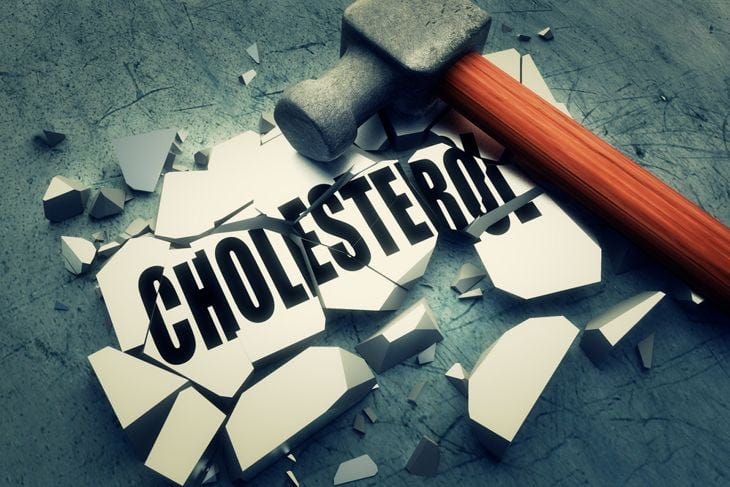The Cholesterol Myth
Understanding the Truth About Cholesterol and the Dangers of Cholesterol Medication
For decades, we've been told that high cholesterol is a leading cause of heart disease and that lowering cholesterol levels, particularly through medication, is essential for good health. However, this narrative is increasingly being questioned by experts who argue that the story we've been told about cholesterol is not only oversimplified but potentially harmful. Among these voices is Dr. Barbara O'Neill, a renowned naturopath and health educator, who sheds light on the crucial role of cholesterol in the body and the dangers of cholesterol-lowering drugs.
Understanding Cholesterol: The Basics
Cholesterol is a waxy, fat-like substance that is found in every cell of the body. It is essential for the production of certain hormones, vitamin D, and bile acids that help digest fat. Cholesterol also plays a vital role in maintaining the structure of cell membranes and is crucial for brain function.
Cholesterol is carried through the bloodstream by lipoproteins, which come in two primary forms:
Low-Density Lipoprotein (LDL): Often labeled as "bad cholesterol," LDL is responsible for transporting cholesterol from the liver to the cells where it is needed.
High-Density Lipoprotein (HDL): Known as "good cholesterol," HDL carries cholesterol away from the cells and back to the liver, where it can be recycled or excreted.
The Liver’s Role in Cholesterol Production
The liver plays a central role in managing the body's cholesterol levels. It produces about 75% of the cholesterol that circulates in the blood, with the remaining 25% coming from dietary sources. The liver doesn't produce cholesterol arbitrarily; it produces exactly what the body needs. When the body requires more cholesterol for cellular repair, hormone production, or other functions, the liver increases its output accordingly.
The Truth About LDL: Not the Enemy
LDL cholesterol has been vilified for its association with plaque buildup in arteries, which can lead to heart disease. However, LDL itself is not the villain. In fact, LDL has a crucial function in the body: it delivers cholesterol to areas where it is needed for repair and healing.
When toxins or other harmful substances damage blood vessels, LDL acts as a first responder, bringing cholesterol to the damaged area to initiate the repair process. This is why LDL levels may increase in response to inflammation or injury. Rather than being the cause of heart disease, elevated LDL levels are often a symptom of underlying damage caused by factors such as poor diet, stress, and exposure to environmental toxins.
Dr. Barbara O'Neill explains that LDL should be seen as the body's natural healing mechanism. The real issue is not the cholesterol itself, but the chronic inflammation and damage that necessitate its increased production and use.
The Danger of Cholesterol-Lowering Drugs
Cholesterol-lowering medications, particularly statins, are widely prescribed to reduce LDL levels. These drugs work by inhibiting an enzyme in the liver that is necessary for cholesterol production. However, this intervention has significant consequences.
Blocking Cholesterol Production: By inhibiting cholesterol production, these drugs prevent the liver from producing the cholesterol the body needs for essential functions. This can lead to a host of problems, particularly in the brain.
Impact on Brain Function: Cholesterol is vital for brain health, especially for memory and cognitive function. The brain contains about 25% of the body's cholesterol, which is used to form the myelin sheath around neurons, facilitating communication between brain cells. When cholesterol production is inhibited, it can impair brain function, leading to memory loss and cognitive decline. This is one reason why many people on cholesterol-lowering medications, especially the elderly in nursing homes, suffer from dementia.
Blocking Essential Enzymes: Cholesterol-lowering drugs don't just block cholesterol production; they also inhibit the production of other important enzymes that are critical for overall health. These enzymes are involved in various biochemical processes, including the production of Coenzyme Q10 (CoQ10), which is essential for energy production and heart health.
Rethinking Cholesterol
It's time to rethink the cholesterol narrative. Cholesterol is not the enemy; it's a vital substance that the body produces in response to specific needs. Rather than focusing on lowering cholesterol at all costs, we should be addressing the root causes of the damage and inflammation that lead to elevated LDL levels. This includes adopting a healthy diet, managing stress, reducing exposure to toxins, and supporting the body's natural healing processes.
Dr. Barbara O'Neill's insights challenge us to look beyond the conventional wisdom and consider the broader implications of cholesterol and its role in our health. By understanding the true nature of cholesterol and the potential dangers of cholesterol-lowering medications, we can make more informed decisions about our health and well-being.
It's essential to recognize that cholesterol is not a threat but a crucial component of our body's healing and maintenance systems. The real focus should be on maintaining overall health, addressing inflammation, and ensuring the body has the nutrients it needs to function optimally.
Very informative, if you want only the Cholesterol part you can fast forward to the 7 minute mark.





